Choosing Your Home Loan

Buying a home is one of the most significant financial decisions you will ever make. While searching for the perfect property is exciting, understanding how to finance that purchase is equally important. Choosing the right home loan can have a lasting impact on your monthly payments, total interest costs, and long-term financial stability. With so many loan options available, it is crucial to educate yourself before signing on the dotted line. At Crescent Title, we help clients across Louisiana navigate the homebuying process with confidence, walking you through the key loan types, what factors to consider, and how to make the most informed decision for your future.
Understanding the Types of Home Loans Available
When it comes to mortgages, there is no one-size-fits-all solution. Every buyer’s situation is different, and selecting the right loan depends on your credit score, income, savings, and long-term goals. Below are the most common types of home loans and how each one works.
Conventional Loans
A conventional loan is one of the most popular types of home financing. These loans are not backed by the federal government and usually require a higher credit score and a solid financial profile. Borrowers who can afford a 20 percent down payment can avoid private mortgage insurance (PMI), which reduces monthly costs. If your financial record is strong, a conventional loan could offer a competitive interest rate and fewer restrictions than government-backed options.
Conventional loans also come with flexible term lengths and can be tailored to your unique needs. However, if you have a limited credit history or a smaller down payment, you might find it more challenging to qualify for this type of loan without paying higher interest or mortgage insurance.
FHA Loans
Backed by the Federal Housing Administration, FHA loans are designed to make homeownership more accessible to people with lower credit scores or limited savings. They allow for a down payment as low as 3.5 percent and are often the preferred choice for first-time homebuyers.
While FHA loans are more flexible in terms of credit and down payment, they do require mortgage insurance premiums that are typically paid over the life of the loan. Buyers should factor these extra costs into their overall monthly budget when considering this option.
VA Loans
VA loans are available exclusively to veterans, active-duty service members, and eligible surviving spouses. These loans are guaranteed by the U.S. Department of Veterans Affairs and offer excellent terms, including no down payment, no PMI, and competitive interest rates.
For those who qualify, VA loans are among the most affordable and accessible mortgage options. They are a great way to honor military service by making homeownership easier and more affordable.
USDA Loans
The U.S. Department of Agriculture offers USDA loans to encourage homeownership in rural and suburban areas. These loans require no down payment and have favorable interest rates, making them attractive for low to moderate-income buyers.
However, USDA loans come with specific eligibility requirements related to location and income. Be sure to check if the property you are interested in and your household income fall within the program’s guidelines.
Jumbo Loans
Jumbo loans are used to finance homes that exceed the conforming loan limits set by Fannie Mae and Freddie Mac. These loans are ideal for buyers purchasing high-value properties, such as luxury homes or homes in expensive markets.
Because of the larger loan amount, jumbo loans typically require a higher credit score, a larger down payment, and a more thorough financial review. They may also come with slightly higher interest rates and stricter terms.
Key Factors to Consider When Choosing a Home Loan
Selecting a mortgage involves more than just picking the loan type. Here are the most important factors to evaluate as you compare your options.
1) Interest Rates: Fixed vs. Adjustable
Fixed-rate mortgages keep the same interest rate throughout the life of the loan, meaning your monthly principal and interest payments stay the same. This predictability is comforting to many buyers and can be ideal for those planning to stay in their home long-term.
Adjustable-rate mortgages (ARMs), on the other hand, start with a lower interest rate that adjusts after a certain period. While ARMs can save you money initially, they come with the risk of rising payments in the future. If you expect to move or refinance within a few years, an ARM might make sense.
2) Loan Term Length
Loan terms typically range from 15 to 30 years. A 15-year mortgage allows you to pay off your home faster and with less interest, but your monthly payments will be higher. A 30-year loan offers smaller monthly payments, but you will pay more interest over the life of the loan.
Consider your monthly budget, future plans, and how much you want to pay in interest when deciding on a loan term. A shorter loan can build equity faster, while a longer loan offers more breathing room each month.
3) Down Payment Requirements
How much you can put down upfront will significantly influence your loan options. A larger down payment reduces the amount you need to borrow and may help you avoid paying mortgage insurance.
However, there are many loan programs that allow smaller down payments, including FHA, VA, and USDA loans. Be realistic about what you can afford without draining your savings. You may also qualify for state or local down payment assistance programs.
4) Monthly Payment Affordability
Your monthly mortgage payment includes more than just principal and interest. You also need to account for property taxes, homeowner’s insurance, and possibly HOA dues or mortgage insurance.
Use a mortgage calculator to get a full picture of your monthly cost. Make sure your payment fits comfortably within your income and lifestyle, leaving room for savings, maintenance, and unexpected expenses.
5) Credit Score Impact
Lenders use your credit score to determine your eligibility and interest rate. Higher scores can unlock better loan terms and lower rates, which saves you money over time.
Before applying for a mortgage, review your credit report and resolve any outstanding issues. Paying down debt and avoiding new credit inquiries can also help improve your score in the months leading up to your application.
6) Closing Costs and Fees
Closing costs typically range from two to five percent of the home’s purchase price. These can include lender fees, appraisal costs, title insurance, and more. Understanding these expenses upfront can help you budget accordingly.
Crescent Title offers transparent pricing and works closely with your lender to ensure a smooth closing process. We will help you review your loan estimate and closing disclosure so there are no surprises.
Work with a Knowledgeable Team
Navigating home loans can be overwhelming, especially for first-time buyers. That is why working with an experienced and trustworthy team is so important. While your lender provides the loan itself, your title company ensures that the property ownership transfers legally and accurately.
At Crescent Title, we do more than handle paperwork. We serve as a trusted guide throughout the closing process. From title searches to final signatures, we are here to protect your investment and give you peace of mind. Our team is happy to explain closing costs, answer questions about your settlement statement, and coordinate with your lender and real estate agent for a seamless transaction.
Common Mistakes to Avoid
Many homebuyers rush into a loan without fully understanding the consequences. Here are some pitfalls to steer clear of during your search.
Failing to shop around for different loan offers can lead to higher interest rates or less favorable terms. Always compare quotes from multiple lenders before making a final decision.
Do not base your choice solely on the lowest monthly payment. Consider how much interest you will pay over the loan’s lifetime, how the terms fit your financial goals, and whether the loan has any prepayment penalties.
Avoid borrowing the absolute maximum amount you are approved for. Lenders base approvals on gross income, but you should base your budget on what you can comfortably afford after taxes, bills, and savings.
Lastly, never skip pre-approval. Getting pre-approved gives you a clear idea of your price range and shows sellers that you are a serious buyer.
Final Tips for Confident Decision-Making
Take time to read through your loan documents carefully. Do not hesitate to ask questions about anything you do not understand. A reputable lender and title company will gladly explain the details.
Get pre-approved before you begin house hunting. This gives you a competitive edge and helps avoid falling in love with homes outside your budget.
Make sure your loan aligns with your long-term plans. If you plan to stay in the home for decades, a fixed-rate mortgage with a stable payment may be your best option. If you anticipate moving in a few years, a shorter-term loan or ARM might offer better short-term savings.
Always consider the big picture. The right mortgage is one that works for your lifestyle today and supports your goals tomorrow.
Make the Smart Move with Crescent Title
Find the Right Loan and Close with Confidence
Choosing the right home loan is a crucial part of the homebuying journey. With so many options and variables, it helps to have a trusted team by your side. Crescent Title has guided thousands of homeowners through successful closings, offering reliable service, transparent communication, and deep experience in the real estate industry. Whether you are buying your first home or your fifth, let us help you close with clarity and confidence. Reach out to Crescent Title today and take the next step toward homeownership the smart way.

